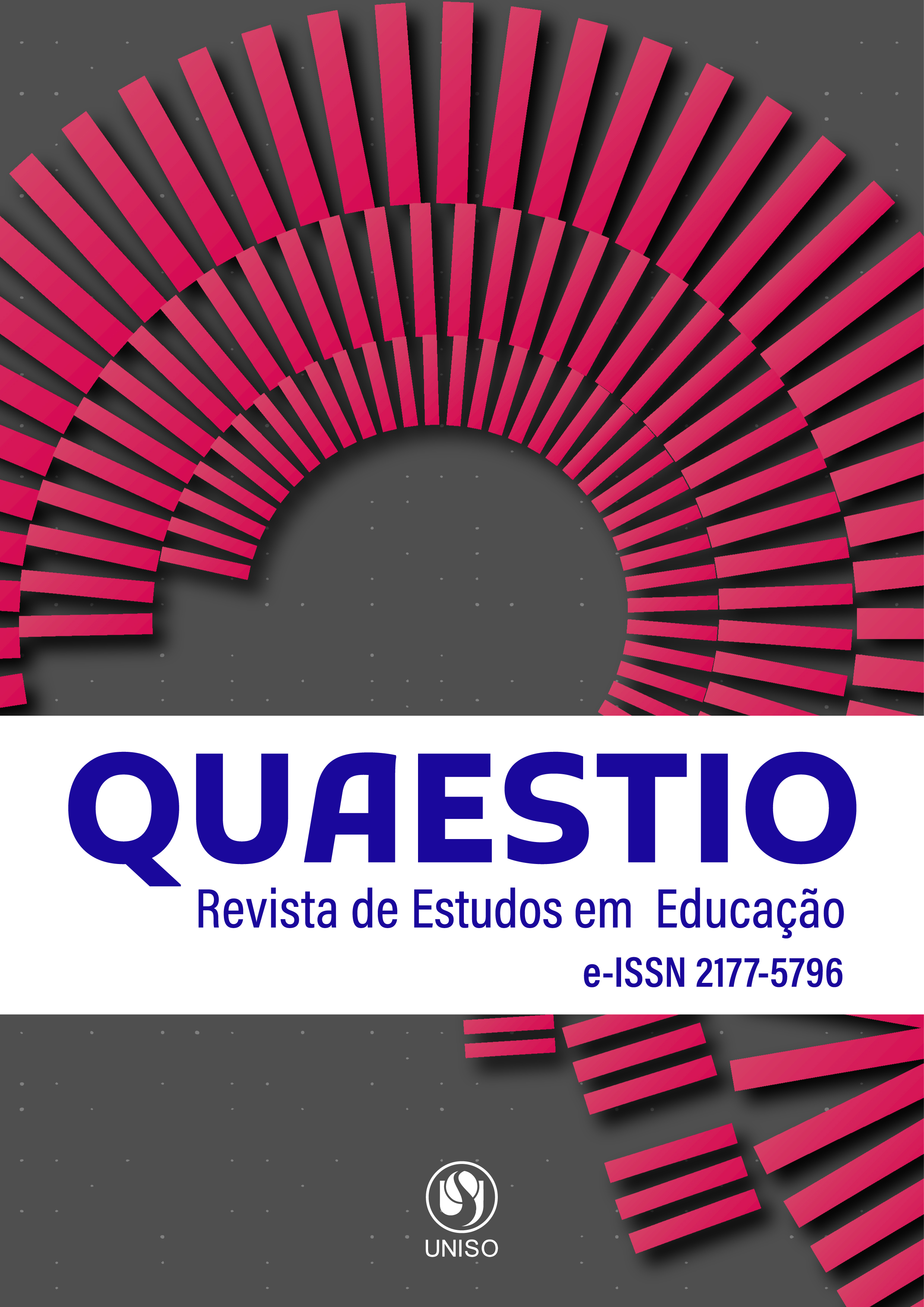GÊNERO E APRENDIZAGENS
VIVÊNCIAS DE ESTUDANTES UNIVERSITÁRIAS EM UM PERÍODO DE ISOLAMENTO SOCIAL
DOI:
https://doi.org/10.22483/2177-5796.2025v27id5482Palavras-chave:
aprendizagem, gênero, ensino superior.Resumo
O artigo apresenta os resultados de uma pesquisa que teve como objetivo compreender processos que configuraram a relação com o saber estabelecida por mulheres estudantes do ensino superior, em um período de isolamento social, na transição do ensino presencial para o ensino remoto, em função da covid-19. Como referências teóricas, adotam-se os estudos de gênero e educação, a teoria da relação com o saber, na acepção de Bernard Charlot, e contribuições da geógrafa Doreen Massey. No percurso metodológico do trabalho assume-se o enfoque (auto)biográfico adotado nas pesquisas em educação. O material empírico foi produzido por meio de entrevistas narrativas com três estudantes dos cursos de Pedagogia, Ciências Contábeis e Medicina Veterinária e opera-se, na análise, com o conceito de “lugares-dentro-dos-lugares” de Doreen Massey. Os resultados mostraram que suas vivências e aprendizagens se tecem em práticas de cuidado femininas, que antecedem o contexto da covid-19 e permeiam suas condições de estudantes no ensino superior. O artigo ressalta as inúmeras sequelas e retrocessos causados pela pandemia da covid-19 no que tange à educação, trabalho, saúde e à busca pela equidade de gênero.
Downloads
Downloads
Publicado
Edição
Seção
Licença
Copyright (c) 2025 Karine Keily Rangel Teixeira, Maria Celeste Reis Fernandes de Souza, Cristiane Mendes Netto

Este trabalho está licenciado sob uma licença Creative Commons Attribution 4.0 International License.
Esta licença permite que outros distribuam, remixem, adaptem e criem a partir do seu trabalho, mesmo para fins comerciais, desde que lhe atribuam o devido crédito pela criação original.
Os artigos publicados são de total e exclusiva responsabilidade dos autores, que mantêm os direitos autorais e atribuem o direito da primeira publicação para a Quaestio: Revista de Estudos em Educação do Programa de Pós-Graduação em Educação da Universidade de Sorocaba.
Outros acordos contratuais podem ser feitos pelos autores, para posterior distribuição da versão do artigo (por exemplo em páginas institucionais ou pessoais, ou em livro), explicitando que o trabalho foi publicado nesta revista .



















